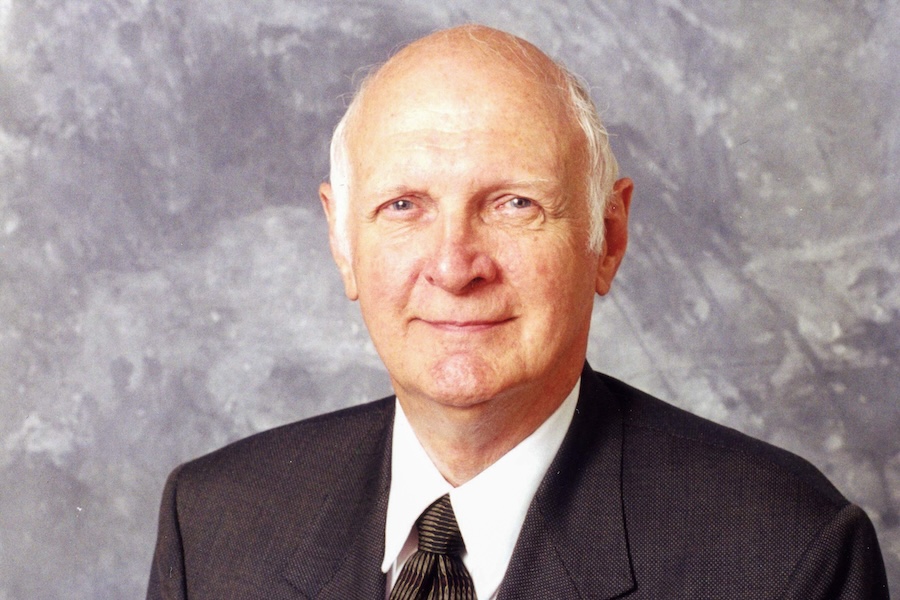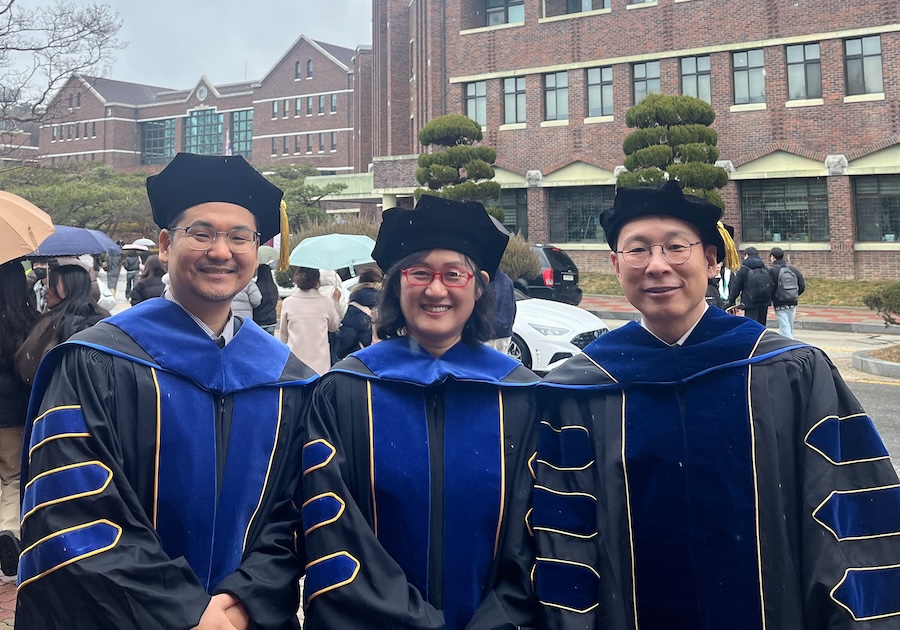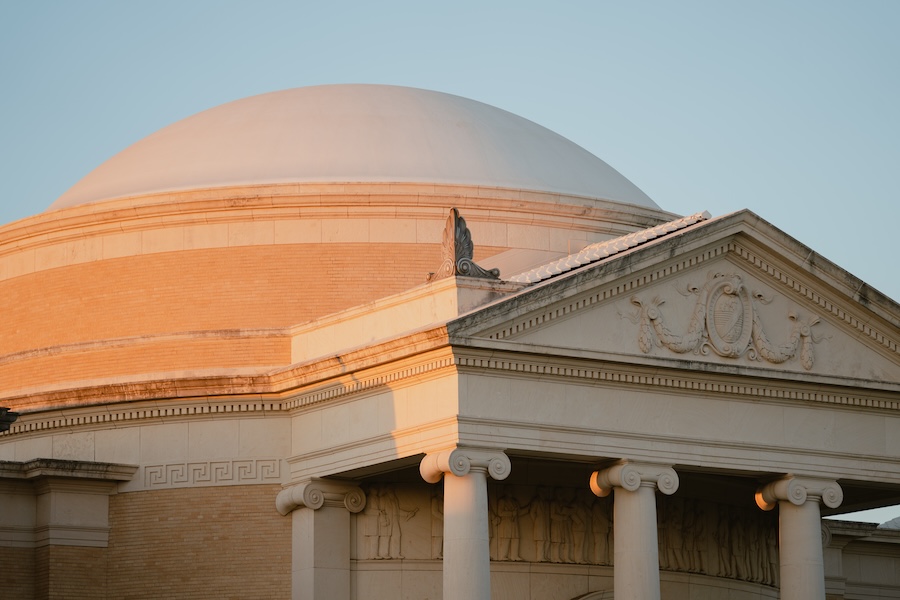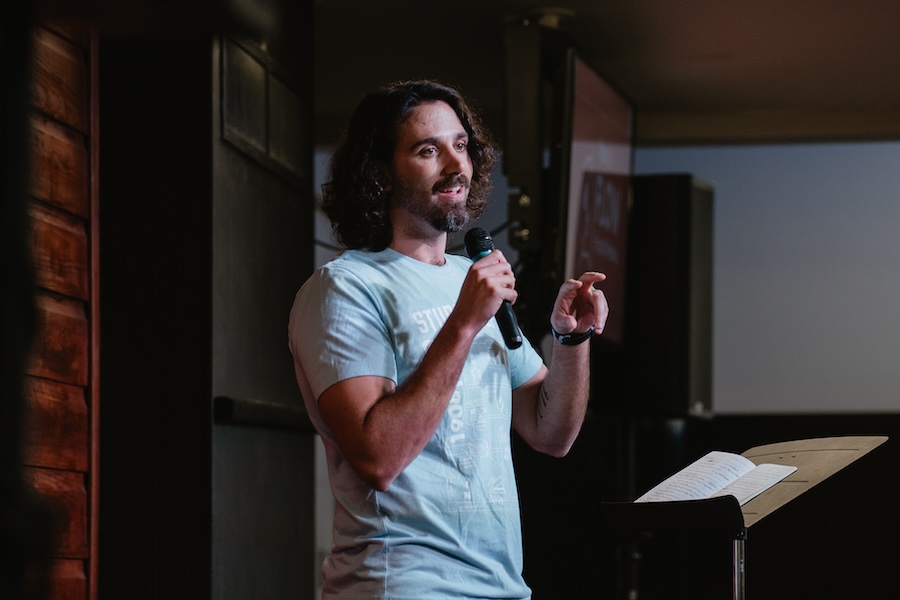Yarnell’s passion for theology builds love for Jesus, local church, students say
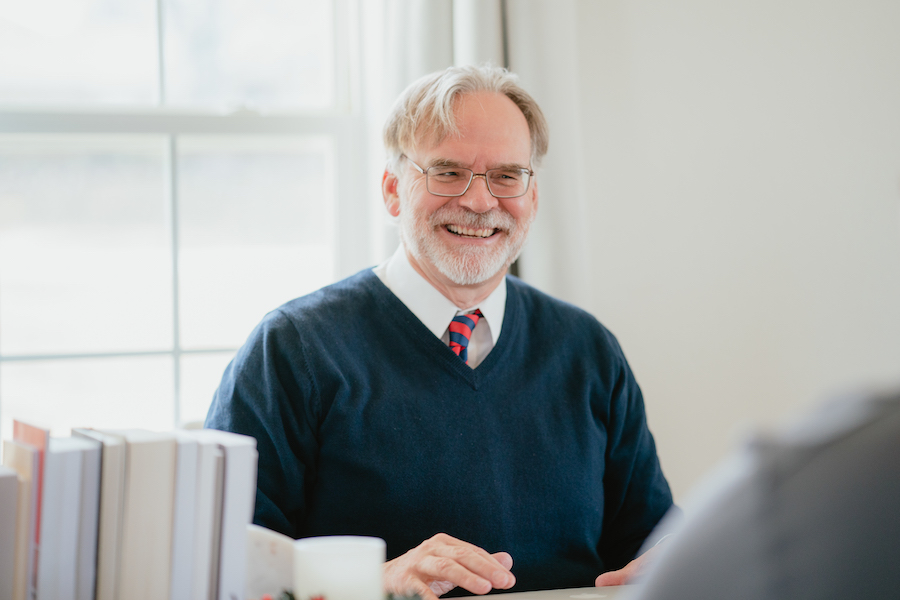
Malcolm B. Yarnell III’s passion for theology results in greater love for Jesus and the local church, students say.
“If you start talking about theology, I can’t stop,” said Yarnell, research professor of theology at Southwestern Baptist Theological Seminary. “And I have to be careful because I do believe in the priesthood of all believers.”
All believers are called to be prophets, priests, and kings under Christ, he said, adding that, “Every good Christian should be a theologian. … we all have a voice, we all have the Holy Spirit, we all should have access to the Word of God, and the Spirit of God interpreting the Word of God is what opens up truth to our eyes, a transformative truth.”
Yarnell was exposed to the Gospel as a young child and was “born again, by faith, right before I was baptized at the age of seven, through Vacation Bible School in Bossier City, Louisiana.” His father, who was serving in the United States Air Force, was stationed in Bossier City at the time, and his great-grandmother also lived in the city. She was a founding member of Barksdale Baptist Church in Bossier City, Yarnell said, adding that the family would visit and go to church with her. “That’s where I was baptized,” he said. “That’s where I rededicated my life to the Lord.”
Yarnell attended Louisiana State University in Shreveport and was active in the Baptist Student Union there. He earned a degree in finance and “thought I would support ministers. I thought that was my calling.”

Malcolm B. Yarnell III, said he believed God called him to teach when he was in the classroom of James Leo Garrett, the late distinguished professor emeritus of theology at Southwestern Seminary.
When God called him into ministry, he said, “it kind of surprised me because I didn’t think He could call someone like me because I didn’t fit the, you know, the gregarious, outgoing personality that I saw all around me.” Despite describing himself as “a bit introverted” and noting he’s more comfortable with books, Yarnell said he knew he was also called to be a teacher. “I didn’t know exactly what until I stepped into James Leo Garrett’s classroom. … that’s when I knew that I was called not just to teach, but to teach theology.”
Garrett was distinguished professor of theology emeritus at Southwestern. Yarnell called Garrett “the third great systematic theologian of Southwestern Seminary,” serving in the latter half of the 20th century.
Yarnell earned his Master of Divinity degree at Southwestern, then went to Duke Divinity School.
“I wanted to get deeper into Reformation theology because I think evangelicals owe quite a lot to the Reformation,” he said. He studied under David Steinmetz, a well-known Reformation scholar. After earning his Master of Theology degree at Duke, Yarnell returned to the pastorate and planned to return to Southwestern to pursue a Doctor of Philosophy degree under Garrett, whom he called “the theologian that has had the greatest impact on me.”
His plans changed, however, when his pastor told him he needed to apply to the University of Oxford.
“And I thought, … they won’t accept a boy from the swamps of Louisiana, you know; they don’t do that kind of thing,” Yarnell said.
He did apply, though, and not only was accepted, but was placed in advanced standing due to his work at both Southwestern and Duke.
Yarnell wrote his dissertation on the priesthood of all believers. The Archbishop of Wales, Rowan Williams, who became the Archbishop of Canterbury, was the external reader, and Diermaid MacCulloch, a respected professor of Reformation history, was the internal reader.
“And I got in the room with them and I thought, ‘They’re gonna fail me,’” he said with a laugh.
They didn’t. In fact, he said, they liked it so much, they wanted to see it published. Oxford University Press published his dissertation, Royal Priesthood in the English Reformation, his first major book.

A prolific reader and writer, Yarnell has authored several books, including God, the first volume in the Theology for Every Person series. He also co-authored Special Revelation and Scripture in the Theology for the People of God series with Southwestern President David S. Dockery, and co-edited with Dockery The Authority and Sufficiency of Scripture, Revised and Expanded.
“And then I had opportunities to go to other places, and have throughout the years, but I knew God was calling me to Southwestern Seminary,” he said.
Yarnell sees his role as a systematic theologian in the classroom. He also is a teaching pastor at Lakeside Baptist Church in Granbury and says “the good theologians are always the ones who are active in the local church in some way.” He enjoys being a teaching pastor, he said, adding, “I think that the academy exists for the church. So the seminary exists for helping the churches to accomplish their mission. And that means that the professors really should be deeply involved in the life of the church, and if I’m going to be teaching church leaders, I need to be in a church leadership role.”
In the classroom, Yarnell prefers combining lecture plus “a heavy dose of conversation. … I can fill up the whole time with lectures, but I also want that feedback, because I want to make sure that I’m communicating correctly. I also want to not just convey information; I want to receive information because I believe that theology is done as an exercise of disciples who are responding to the Word of God.”
In further explaining his understanding of God’s call for him as a teacher, Yarnell said, “A Christian pastor and teacher must extend his proclamation ministry as far and deep and wide as he possibly can. For me, this entails preaching biblical theology generally to Christ’s church, equipping with gospel orthodoxy her future ministers through oral teaching, and publishing in as wide a venue as possible the inestimable glories of the Lord Jesus Christ.”
Yarnell follows his call through serving as editor of the Southwestern Journal of Theology and author of numerous publications, including his most recent: God, the first volume in the Theology for Every Person series. He also co-authored Special Revelation and Scripture in the Theology for the People of God series with Southwestern President David S. Dockery, and co-edited with Dockery The Authority and Sufficiency of Scripture, Revised and Expanded.
Yarnell counts among his former students “most of the systematic theologians in systematic theology at Southwestern,” including W. Madison Grace II, provost and vice president for academic administration, and dean of the School of Theology; John Mann, associate professor of business and theology and assistant to the president for constituent relations; Travis Trawick, assistant professor of theology and vice president for institutional effectiveness and strategy; Michael Wilkinson, associate professor of theology and director of professional doctoral studies; and Hongyi Yang, associate professor of world Christianity and director of Chinese language programs.
Current students McLain and Rebecca Johnson said Yarnell brings both passion and humility to the classroom, but the focus is always on God.
McLain, a student from McKinney, Texas, who is pursuing a Master of Divinity degree in theology, said he was interested in theology before taking a class with Yarnell, but “he’s just really brought my love for theology to new heights, just with his passion for it.”
Rebecca, originally from Van Alstyne, Texas, and pursuing a Master of Divinity in missions and evangelism, said she initially didn’t like systematic theology “because I came from a family that had seen so many systems be divisive for people,” she said.
“I was scared and not super excited about the class,” she added with a laugh.
But the class “was just so humbling,” she said. “You sit there and you see it’s not about making systems that are supposed to divide Christians; it’s about knowing and loving God deeper.”
Derrick Bledsoe is a two-time Southwestern alumnus who currently is working toward a Doctor of Philosophy in systematic theology.
“I have learned to love the Scriptures deeply since I’ve been here [at Southwestern],” he said. “But with Dr. Yarnell, I have fallen more in love with Jesus, too. … There is something about the way Jesus Christ is framed in Dr. Yarnell’s teaching that grows my love for the Lord.”
Bledsoe, senior pastor of City on a Hill in Fort Worth, added that nothing students do in Yarnell’s classes is purely theoretical – everything must be for the building up of the church.
“Dr. Yarnell is about as academic as it gets – he is truly brilliant – and yet his insistence on the application to the church is so refreshing,” he said. “If what we are doing isn’t building up the church, it’s useless.”
